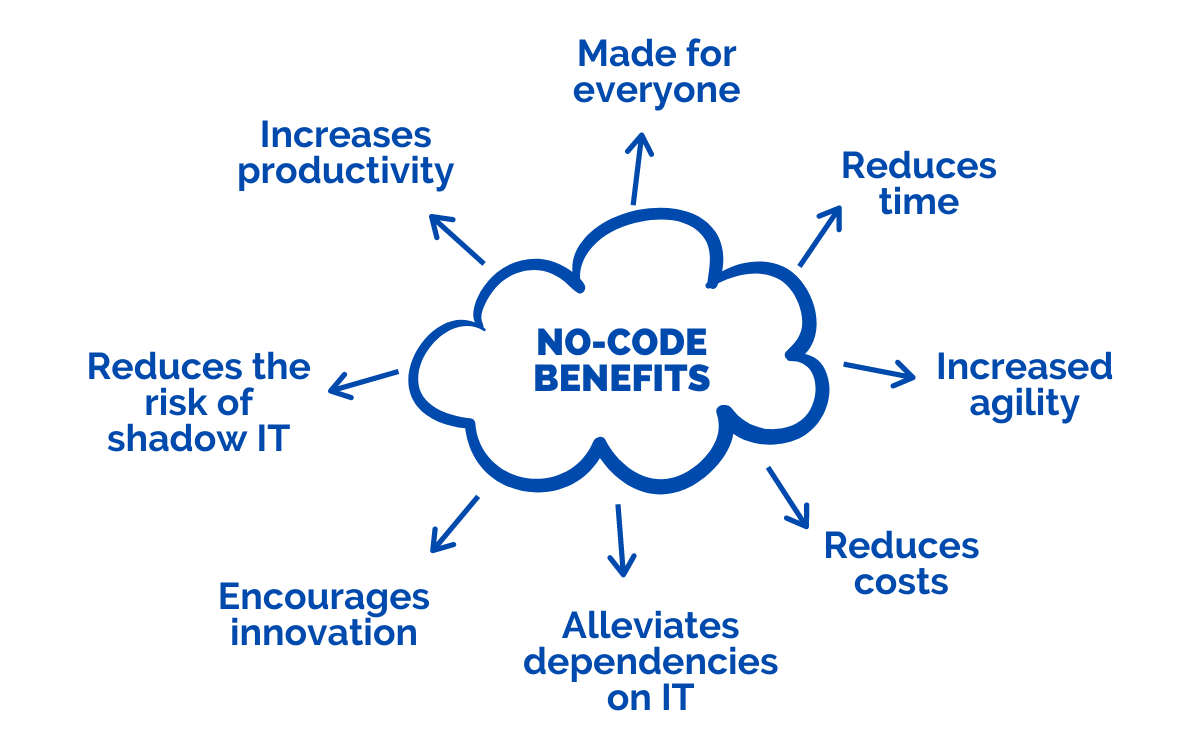Explore Best Non Coding IT Jobs
Table of Contents

- jaro education
- 30, May 2024
- 5:09 pm
The Information Technology (IT) sector is a vast and dynamic field that extends far beyond coding and software development. While programmers and developers often take centre stage, a myriad of crucial roles exist that do not require coding skills but are equally essential to the functioning and success of tech companies. These roles range from project management and data analysis to user experience design and cybersecurity, forming the backbone of IT operations.
Non-coding IT jobs roles are essential as they align technology solutions with business objectives, uphold quality standards, and enhance user experiences. These roles focus on the planning, management, analysis, and security of IT projects, which are crucial in transforming technical solutions into effective business results. Moreover, with technology becoming integral to every sector, the need for skilled professionals in these areas is increasing, showing that coding skills are not necessary for a successful and influential career in technology.
It is vital to acknowledge the significance of these roles, not just for individuals contemplating a career in IT but also for businesses aiming to develop strong and innovative technology infrastructures. In the following sections, we will delve into the top 10 non-coding IT jobs that exemplify the variety and opportunities within the sector, providing pathways for creativity, strategic thinking, and problem-solving without the requirement of coding.
1. IT Project Manager
An IT Project Manager oversees the planning, execution, and completion of project tasks within the IT department. They are accountable for managing project objectives, schedules, and resources to ensure timely, budget-compliant, and scope-aligned project delivery. Acting as a bridge between technical teams and business stakeholders, the IT Project Manager translates business goals into actionable project strategies.
Key Responsibilities:
- Define project scope, goals, and deliverables aligned with senior management and stakeholder objectives.
- Develop comprehensive project plans and related communication materials.
- Communicate project expectations clearly and effectively to team members and stakeholders within designated timelines.
- Estimate necessary resources and participants for meeting project objectives.
- Maintain consistent management of project expectations with team members and stakeholders.
- Plan and schedule project timelines and milestones using suitable tools.
- Delegate tasks and responsibilities among team members.
- Establish and manage critical paths and dependencies within the project.
Required Skills and Qualifications:
- Strong leadership abilities and the talent to inspire teams.
- Exceptional communication, negotiation, and networking proficiencies.
- Proficiency in project management software, methodologies, and best practices like Agile, Scrum, Prince2, or PMI.
- Prior experience in budgeting and resource management.
- Detail-oriented and results-driven mindset.
- Minimum Bachelor’s degree in Computer Science, Business, or a related field; a Master’s in Project Management or MBA is advantageous.
- Possession of any project management certification such as PMP, CAPM, or equivalent would significantly bolster their credentials. The IT Project Manager role is highly coveted among leaders adept at strategic planning and possessing strong project management capabilities, without requiring coding skills.
IT Project Managers play a crucial role in the success of technology-driven initiatives, making this position highly desirable for those who excel in leadership and strategic planning without the need for coding skills.
2. Systems Analyst
Systems Analysts bridge the gap between business needs and technological solutions. They assess the required technology of a business or department and design systems that most efficiently help the business or department to satisfy these needs. Their main responsibility is to grasp complex business processes and to design software solutions that are integrated in such a way as to increase productivity and efficiency. The work of systems analysts closely involves IT professionals and at the same time, business stakeholders to ensure all developed systems are attuned to the strategic goals of the business.
Key Responsibilities:
- Analyzing the business requirements and translating them into technical specifications.
- Assess and recommend software and systems that best meet the needs of the organization.
- Working with programmers and software developers in building technology solutions.
- Testing new systems against performance and analysis to ensure that they serve both the needs of the current business and the future.
- Providing end-users with training and support in the use of the system.
- Continuing updated maintenance to existing systems, such that they can change along with the business changes or technological advancement.
- Document system requirements, system updates, and system problems.
Essential Skills for Success:
- Robust analytical and problem-solving skills to find effective solutions to business needs.
- Excellent knowledge of data analysis and modelling techniques.
- Strong communication skills in conveying technical information to non-technical stakeholders.
- Ideally, you should have some prior experience in working with software development processes and methodologies like Agile or Waterfall.
- Ability to multitask with various projects at a time and get them done on time. Understand current technology trends and IT standards. This is mostly vital information to an industry such as finance, health, or manufacturing.
3. User Experience (UX) Designer
User Experience (UX) Designers aim to create satisfying or compelling experiences for the users of a product, usually through the use of results from user research and workflow analysis. UX Designers should have a deep understanding of users and their needs, abilities, and limitations. They take an interest and look at whole systems or services, not just part of a component or interface. They aim to improve the quality of the user’s interaction and experience with the product, including any related services.
Key Responsibilities:
- Conducting user research in order to collect information on their needs and behavior.
- Creating user personas and scenarios that would drive resourceful design decisions.
- Design wireframes, prototypes, and user flows that illustrate the architecture and navigation of digital products.
- Test designs with users to get feedback and iterate on the usability of the products.
- Collaborate with UI designers, developers, and product managers to design and develop visual elements for new functionalities throughout the app.
- Ensure that all user-experience decisions are aligned with core business goals, rather than the other way around, and user interaction models.
- Stay updated with all the latest UX design and technology trends to keep improving the product experience.
Key Skills:
- Good skills in design and prototyping tools like Sketch, Adobe XD, Figma, and InVision.
- Strongly understand design principles and industry standards.
- Excellent communication skills to communicate design decisions and receive feedback.
- Ability to think problem-solving skills, critically about user needs, and behaviors.
- Being familiar with the front-end development processes of how designs get implemented in code. Empathy and creativity are critical to designing engaging and practical user experiences. An ability to work closely with other team members and stakeholders, usually in an agile development environment.
4. Quality Assurance Analyst
Quality Assurance (QA) Analysts are important for any software development cycle as they ensure that the end product meets the company’s set quality standards and meets user requirements. It mainly involves maintaining or checking the quality of the software by identifying bugs, glitches, and any inconsistencies in software programs before it reaches the end user. The QA Analyst is involved right from the design phase of any product and service to the last phases of testing and deployment. This provides critical feedback to enhance product quality.
Key Responsibilities:
- Plan and execute test plans to make sure that all the objectives were met, and the software worked in the expected way.
- Testing in different environments such as web and mobile with record keeping of the results.
- Documenting bugs and errors encountered during tests.
- Work in collaboration with software developers and project support to pin down any process improvements.
- Ensuring tested software is deployed to the end-user concerning the company standards.
- Stay up to date with the latest test tools and test strategies.
Important Skills and Tools:
- Suitable analytical skills to do dissection of complex software systems and isolation of faults.
- Methodologies: Test the software following good software testing practices to deliver quality software.
- Experience in working with automated testing tools such as Selenium, JIRA, TestRail, or any other tools for defect tracking, managing test cases, or any other testing activities.
- Basic knowledge of programming and scripting to be able to automate the tests.
- Excellent communication skills with the ability to clearly and concisely articulate to stakeholders and development teams. They paid attention to detail and tried to ensure the highest standard of quality. Ability to multitask and be flexible to the changing requirements of projects.
5. Network Architect
Network Architects, or Network Engineers, are professionals who design and construct data communication networks, which include local area networks (LANs), wide area networks (WANs), and intranets. These networks can range from simple connections between two offices to advanced networking capabilities like a cloud infrastructure that serves multiple customers. Network Architects must thoroughly understand the company’s business plan to design networks that help the organization achieve its goals. They generally manage the architecture of the company’s network configuration to ensure effective and secure communications.
Key Responsibilities:
- Plan and implement operational network infrastructure.
- Resolve any issues that arise with the network.
- Handle the selection, installation, configuration, and testing of equipment.
- Define network policies and procedures.
- Specify system requirements and design solutions.
- Research and make recommendations on network systems and hardware products.
- Manage the day-to-day operation of networks to ensure uptime and efficiency.
Skills and Experience Needed:
- Comprehensive understanding of network infrastructure and architecture.
- Proficiency in using software analysis and network management tools.
- Strong ability to analyze and solve complex network problems.
- Knowledge of how to establish and maintain network security, including firewalls, VPNs, and other security measures.
6. IT Support Specialist
IT Support Specialists are vital to maintaining the operational health of a company’s IT infrastructure. Their role involves providing technical assistance and support related to computer systems, hardware, and software. They handle queries, run diagnostic programs, isolate problems, and determine and implement solutions, playing a key role in maintaining employee productivity and organizational tech functionality. IT Support Specialists may work within a specific company or for a support firm that provides services to other businesses.
Key Responsibilities:
- Offer technical assistance for setting up, configuring, and maintaining computer systems, hardware, and software.
- Conduct training sessions for non-technical personnel on IT systems and software.
- Ensure operational functionality of essential software like antivirus, printing services, and email platforms.
- Manage multiple cases concurrently and proactively seek solutions.
- Uphold network and computer system security and confidentiality.
- Provide technical guidance and clear instructions to users
Skills and Knowledge Base Required:
- Mastery in operating computer systems, mobile devices, and various tech tools.
- Capability to identify and resolve common technical issues.
- Proficiency in remote desktop tools and help desk software.
- Strong problem-solving abilities coupled with effective communication skills.
- Attention to detail with a focus on customer satisfaction.
- Skill in prioritizing tasks according to urgency and significance.
- Understanding of network security protocols and antivirus software.
7. Data Analyst
Data Analysts play a pivotal role in integrating data and insights to guide strategic decisions within both IT and business domains. They gather, process, and analyze statistical data from extensive datasets to uncover actionable insights and solutions. In today’s data-centric business landscape, Data Analysts sift through vast information repositories to enhance operational efficiencies, address customer requirements effectively, and maintain a competitive edge.
Key Responsibilities:
- Gather data from diverse sources and organize it within databases and data systems.
- Analyze data using statistical methods and provide regular reports.
- Develop and implement database structures and systems to enhance data collection and analysis efficiency.
- Identify and interpret trends or patterns within intricate data sets.
- Collaborate with leadership to address business priorities and information requirements.
- Identify and propose process enhancements for continuous improvement.
Essential Analytical Tools and Skills:
- Proficiency in statistical software like R, Python (with Pandas and NumPy libraries), SQL, or MATLAB.
- Expertise in data visualization tools such as Tableau, Power BI, or Google Data Studio.
- Strong analytical skills for collecting, organizing, analyzing, and presenting large datasets accurately and comprehensively.
- Competence in query management, report creation, and impactful insights delivery. Utilize critical thinking to derive novel insights from data patterns and numbers.
- Familiarity with machine learning techniques for augmenting data analysis capabilities.
8. Cloud Specialist
Cloud Specialists are IT specialists focused on the implementation, management, and maintenance of cloud infrastructure. They are often employed by companies making the transition from traditional server-based infrastructure to cloud solutions. Their key role is to design, configure, and maintain essential cloud services and infrastructure. Cloud Specialists ensure that the cloud environments are efficient, scalable, and reliable for the organization.
Key Responsibilities:
- Create, implement, and manage cloud environments using IaaS providers such as AWS, Azure, or Google Cloud Platform.
- Ensure the cloud systems are secure, scalable, and reliable.
- Monitor the performance of the cloud, recommend improvements, and manage resources.
- Automate cloud functions to streamline operations.
- Apply best practices and develop cloud solutions for business continuity.
- Collaborate with IT Security to secure the cloud environment from vulnerabilities.
- Provide technical advice and support on cloud-related issues.
Skills and Certifications Needed:
- Strong understanding of at least one major cloud service provider (AWS, Azure, Google Cloud).
- Expertise in building, deploying, and managing virtual and physical networks, including software-defined networks and hybrid clouds.
- Deep knowledge of cloud security guidelines and best practices.
- Experience with automation software (e.g., Chef, Puppet, Ansible) to facilitate effective cloud operations.
- Strong analytical and problem-solving skills to address issues in the cloud infrastructure.
Certifications:
- AWS Certified Solutions Architect or Certified SysOps Administrator.
- Microsoft Certified: Azure Administrator Associate or Azure Solutions Architect Expert.
- Google Certified Professional Cloud Architect or Cloud Engineer.
- CompTIA Cloud+ for a foundational understanding of cloud computing.
9. Cybersecurity Analyst
The role of the cybersecurity analyst, on the other hand, is focused on ensuring that the organizational information systems are secure from cyber threats and attacks. They monitor, detect, investigate, and analyze organization IT environment security events to take required actions effectively. The human mind does not naturally understand the panorama of cyber threats, hence the creation of such tools to help avert data breaches and reduce security risks. Its expertise strengthens organizational resilience and the security posture of organizations to protect sensitive data and maintain stakeholders’ trust.
Key Responsibilities:
- To monitor network traffic and look for anomalies that may indicate a security breach.
- Vulnerability testing coupled with risk analysis to ensure security.
- Perform incident response analysis and coordinate recovery actions.
- Design and implement safeguards and countermeasures.
- Staff should receive security awareness and protocol training.
- Be sure to keep up-to-date with the latest advisories, alerts, vulnerabilities, legislation and regulations, and the human being: privacy in security.
Essential Tools and Skills:
- Having skills in security tools such as firewalls, antivirus software, and intrusion detection systems.
- Skilled in using SIEM (Security Information and Event Management) tools to monitor and analyze security events.
- In-depth knowledge of cybersecurity frameworks (such as NIST, ISO/IEC 27001) and regulatory compliance.
- Cryptographic knowledge: symmetric and asymmetric encryption. Knowledge in very secure architectures over the network.
- Quick evaluation and response in dealing with security issues necessitate human abilities such as critical thinking and problem-solving skills. Excellent communication skills to be used effectively in giving the risks and defenses a human voice for non-technical stakeholders. Familiarity with programming or scripting languages (such as Python) will be of great help in automating their security solutions and giving them both brief and detailed analyses of forensic exercises.
10. Product Manager
Product Managers hold a key role in technology companies; they are the strategic navigators of product development and management. They are responsible for the life cycle of a product, from the conception of an idea to product launch and beyond, ensuring that the product successfully meets market needs and supports business goals. Product Managers act as a bridge between cross-functional teams such as engineering, design, sales, marketing, and customer support, integrating inputs from these groups to shape the product’s future.
Key Responsibilities:
- Define the vision and strategic product direction.
- Develop detailed product requirements and roadmaps outlining the execution plans.
- Lead cross-functional teams from a product’s inception through to its launch.
- Analyze competitive conditions and market trends to position the product effectively.
- Work with marketing to define a go-to-market strategy, ensuring they understand the product positioning, key benefits, and target customers.
- Continuously refine the product strategy based on feedback from customers and stakeholders.
- Monitor product performance metrics and recommend areas for improvement.
Skill Set Required for Success:
- Demonstrate leadership and communication prowess for team leadership and stakeholder management.
- Exceptional analytical abilities to evaluate market dynamics and competitive landscapes.
- In-depth comprehension of customer requirements, translating them into actionable product attributes.
- Capability to prioritize features or projects according to business impact, making decisive choices when needed.
- Proficient in utilizing product management platforms such as JIRA, Asana, or Trello for efficient development tracking.
- Strong strategic planning and problem-solving acumen for effective decision-making.
- Adaptability to evolving market trends and shifting business priorities.
Future Trends in Non-Coding IT Jobs

The non-coding functions within organizations are expanding and becoming more integrated into technological and strategic activities. Several trends could shape the landscape for non-coding roles:
- AI and Machine Learning: These technologies automate routine tasks, shifting non-coding professionals’ focus towards strategic activities like data interpretation, decision-making support, and system oversight.
- Internet of Things (IoT): Increased device interconnectivity will require Network Architects and Systems Analysts to manage increasingly complex networks and ensure seamless communication among devices.
- Cloud Computing: The move towards cloud environments boosts the demand for Cloud Specialists who can effectively manage cloud infrastructure, security, and services.
- Cybersecurity: Rising digital threats will heighten the need for Cybersecurity Analysts as businesses emphasize securing their data and systems.
- Big Data: The exponential growth of data has led to a robust demand for Data Analysts who can convert large datasets into actionable business insights.
- Remote Working Technologies: The popularity of remote work environments is increasing the need for robust tech support systems and IT Support Specialists who can manage and troubleshoot remote technologies.
Conclusion
Non-coding IT job roles are essential in the tech industry, spanning various positions from Project Management and System Analysis to UX Design and Cybersecurity. These roles involve a mix of strategic planning, creative design, and critical problem-solving. As technology advances, the demand for these professionals grows, offering dynamic and challenging career paths. This is excellent news for those interested in technology but less inclined towards coding, providing a promising avenue to succeed in the tech landscape and advance their careers.










